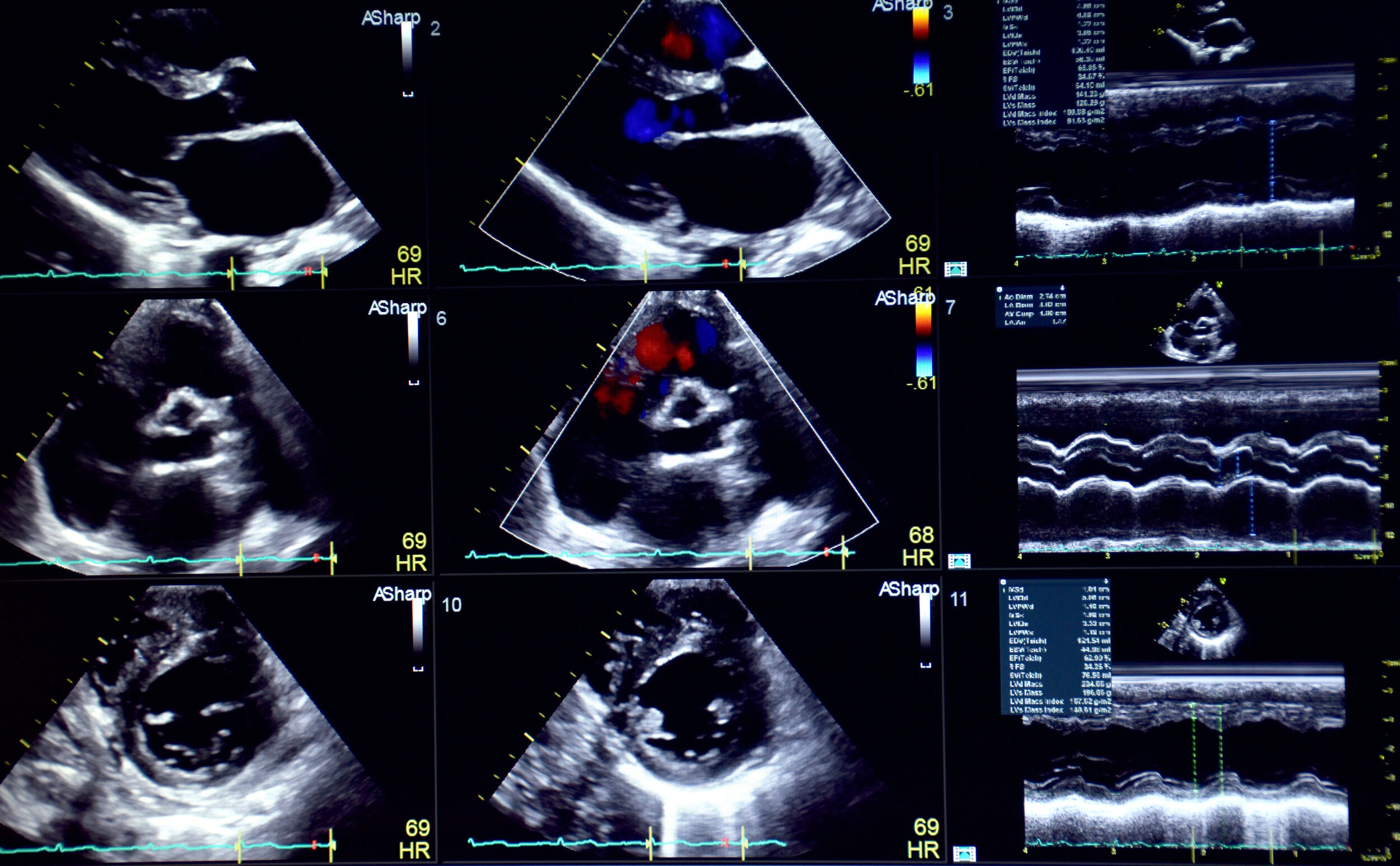Carotid Artery Disease Screening
The carotid arteries are the two large blood vessels on each side of the neck that supply blood to the brain. When these arteries become clogged with plaque, they become narrower, affecting blood flow and complications can be serious. If any of the plaque breaks off, they can block the blood flow to the brain completely, causing a stroke. Our carotid artery screening uses ultrasound to identify the presence of plaque in the carotid arteries, which can develop over time without causing any symptoms.
The carotid arteries are passageways through which blood and oxygen move to a person's brain and face. When fatty plaque obstructs an artery, the blood supply can be reduced or cut off, sometimes resulting in a stroke.
Carotid Artery Disease: The Leading Cause Of Stroke
What Is Carotid Artery Disease?
Carotid artery disease, sometimes referred to as carotid stenosis, occurs when plaque, made up of cholesterol, calcium, and other cellular substances starts to collect and build up in the carotid arteries. Clogged arteries do not deliver blood and oxygen as well as they should to the brain. If these plaques break off, they can travel to the brain, blocking blood flow, and resulting in a stroke. A stroke is a medical emergency, because the loss of blood supply causes the brain cells to begin to die within minutes. Carotid artery disease develops slowly over time as people age, and most people have no symptoms. In fact, for 4 out of 5 people don’t show any signs or symptoms before having a stroke, which is why carotid artery screening is so crucial.
Carotid Ultrasound Details
The best way to check for carotid artery disease is to undergo a screening. The non-invasive ultrasound screening for carotid artery plaque is painless, does not require the removal of any clothing, and only takes about ten minutes. A carotid ultrasound uses sound waves to evaluate the blood flow through the carotid arteries in your neck. This painless test is performed with the use of probe (transducer) that is moved along the neck with a clear gel. If plaque buildup in your carotid arteries is identified, you should discuss these results with your personal physician. If you are diagnosed with carotid artery disease, he or she will most likely recommend lifestyle changes, including changing your diet to be low in saturated fat and sodium, ensuring you exercise regularly, and monitoring and managing your blood pressure and cholesterol levels. Treatment may include medications to thin the blood or to prevent the blood from clotting. If a lifestyle change or treatment plan is ineffective, carotid artery disease could require surgery. A carotid endarterectomy is the surgery that removes plaque buildup from your arteries. The procedure restores normal blood flow to the brain, which prevents the likelihood of a stroke. However, only in the most serious cases of carotid artery disease is a carotid endarterectomy recommended—that’s the value of being screened before you have symptoms and while you and your doctor can still act.
Physicians who are on the front lines of vascular disease believe in these tests—9 out of 10 cardiovascular doctors support preventive health screenings for cardiovascular disease among people with key risk factors.
What Are The Warning Signs Of Carotid Artery Disease?
In its early stages, carotid artery disease develops silently, without causing any pain, discomfort, or any other symptoms. That is the primary reason that getting a screening for carotid artery disease is so important—especially for those people who have risk factors for developing cardiovascular disease. Plaque buildup can go unnoticed until it is serious enough to affect the flow of blood to the brain, and potentially lead to a stroke.
Warning Signs of a Stroke
Sudden numbness or weakness in arms or legs, which may only be present on one side of the body
Facial drooping, which can affect only one side of the face
Sudden difficulty talking
Dizziness
Severe headache
Sudden trouble seeing
What Causes Carotid Artery Disease
There are several contributing factors to carotid artery disease, many of which also contribute to other kinds of heart disease. These factors are as follows:
Age 55+
Family history of cardiovascular disease, heart disease, or stroke
Smoking (past or present)
High Blood Pressure
Diabetes
High Cholesterol
Who should get a carotid artery ultrasound?
Although it is never to early to get a head start on preventative healthcare, carotid artery ultrasound is appropriate for all adults age 55+, and adults age 40+ with two or more risk factors for cardiovascular disease (see list below). Many people at any age who want to be proactive about their health also feel this screening is right for them, regardless of risk factors. Discussing the screening with your doctor is always recommended.
At what age should I get screened for carotid artery disease?
Carotid artery disease screening is appropriate for all adults age 55+. It is also appropriate for adults of any age who have risk factors for cardiovascular disease, and who want to be proactive about their health. Whatever it is, the way you tell your story down the line can make all the difference.
How frequently should I get a carotid ultrasound screen?
People at risk for developing cardiovascular disease can benefit from having an ultrasound for carotid artery disease every year, especially if previous screenings have indicated the presence of plaque in the arteries.




